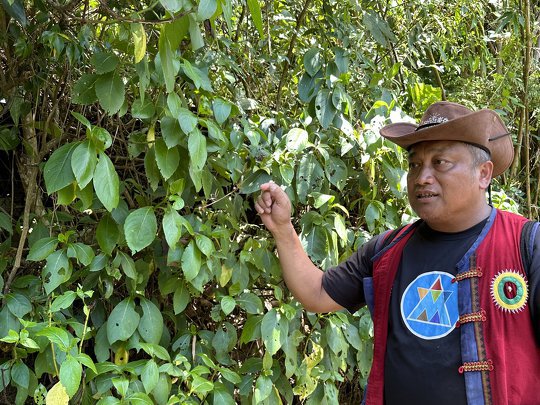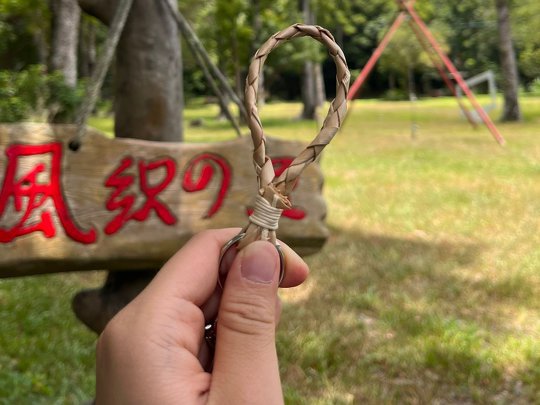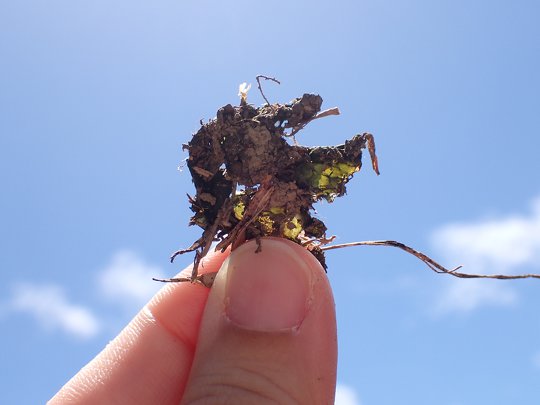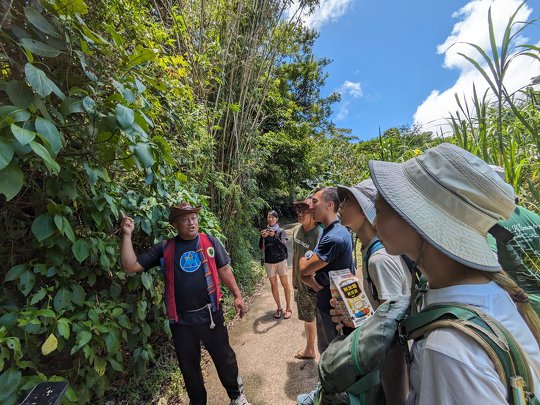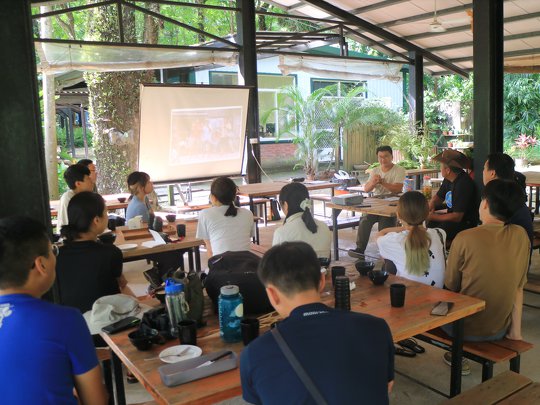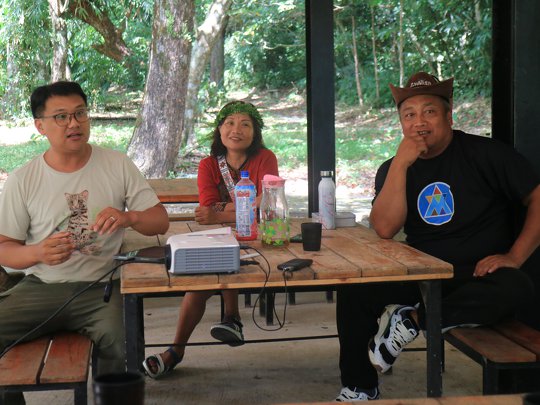Sharing by OWLHK team members
Katie Hui (Assistant Education Officer)
“Tribes have their own rules. Only by respecting lives, ancestors will provide more resources to you. Or else, you could hardly perpetuate the bloodline.” Yi-li, the tour guide from the Dongyuan tribe, instructed us to their traditional lifestyle in the forest. It showcased us how the tribe utilized folk wisdom to co-exist with nature throughout the past 1,000 years. Apart from excellent survival skills, a brilliant member of the Dongyuan tribe has to follow strict rules, and respect species without destroying the ecological balance. For example, a hunter could only acquire a suitable amount of prey, and is forbidden to kill lives recklessly or lives that are breeding. Even if the hunter has successfully captured a prey, the prey should be shared among the tribe. Besides, the bones of the prey have to be treated as sacrificial offerings since it is a way to fully consume an animal. You may ask: What about other members of the tribe? Well, they use local natural resources to create tools. For instance, leaf sheathes of Shell Ginger will be made as decorations, while bamboo leaves will be used in communications. Leaves of Trichodesma plant will be used as cooking ingredients as well. Learning from the guide, I am deeply impressed by how the tribe has wisely used things obtained from the nature. It has also reminded me that achieving a peaceful coexistence with the nature is easier than what I have imagined. If only we observe carefully, restrain our own desires, and feel grateful for what nature has provided us, everyone is able to co-exist with nature.
Jeanne Leung (Assistant Project Manager)
After dancing in the Dongyuan Wetland and having an “intimate” contact with the muddy ground, we followed the tour guide and visited Dongyuan Forest Recreation Area. As we walked along, he asked if we had eaten something called “Yu-lai-gu” during our visit. “Sure! This has been my favourite in the meals since we have been here!”, I thought. Then he crouched down and picked up something like a piece of wilted black dry grass, telling us this is “Yu-lai-gu”! Gazing at the real thing of what we have been eaten, we are all excited and thrilled. Taking loads of pictures of it, we could barely let it go. Then on, we were shown to all sorts of interesting stuff in the forest.
I think this is not merely a guided tour, but a visit to the home of the tour guide. It was like roaming around the house and backyard of his. “This picture was taken in my 20th wedding anniversary.” “This Tangerine tree was planted when I was five.” He naturally introduced us the anecdotes of living in Dongyuan. No doubt, it is enjoyable to join conventional guided tours, but such a way of experiencing life of a person and understanding our neighboring natural environment is fascinating as well.
Roy Cheung (Senior Education and Research Officer)
In Dongyuan tribe, there was a group of passionate environmental educators from the Paiwan tribe. Apart from providing guided tours with broad knowledge, they would explain the connection of nature and human via their tribe culture. Mr. Yi-li had introduced us the leader of the tribe and wildlife preys in the hill. He also explained how hunting and ecological balance could implement the concept of “Satoyama”. On the other hand, Ms. Ming-fang taught us how to make traditional handicrafts with leaves of Shell Ginger. It showed how the historical tribe culture could re-connect humans and nature. After a guided tour, we had the time to interact with these environmental educators. I remember some of us had asked Mr. Ming-heng whether the remuneration of environmental educators was satisfactory or not. ”No doubt, the more you work, the more you are rewarded. Nevertheless, it was sufficient for us to live in Dongyuan.” He and the others proudly answered. Mr. Ming-heng then added that ecotourism could as well benefit local catering industry, homestay sector and the preliminary development of cultivation industry. It could be seen that every aspect of the tribe could be benefited.
The long-established ecotourism in Dongyuan tribe not only provided local high-quality environmental education, but as well helped the tribe to secure a sustainable source of income. Such opportunities could attract more people to stay in their hometown, and learnt how to appreciate and treasure their neighbouring natural environment. Such ecotourism paradigm in Dongyuan may bring some inspirations to Hong Kong’s nature preservation realm, as well as the possibility of developing ecotourism in Hong Kong.
